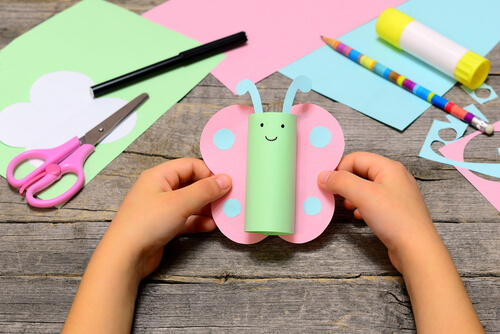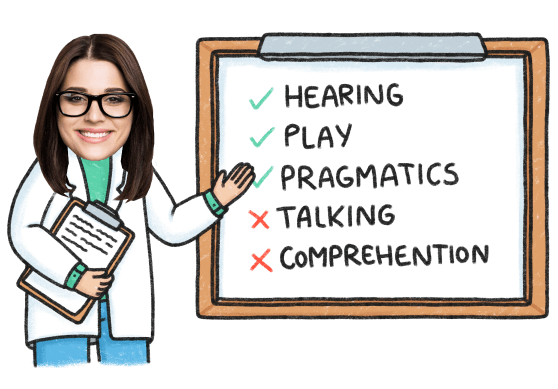5 Painless Ways to Teach Vocabulary in Your Homeschool
Feb 8, 2022 During homeschool classes, every parent has to be able to keep up with the needs and learning difficulties of their children. There are always some things a little more difficult to learn than others and one of them can be vocabulary.
Teaching vocabulary as part of your homeschool curriculum can be a little tricky, but there are always ways to make it as fun and painless as possible. In order to help you achieve that, here are some of the best ways to teach vocabulary in your homeschool.
Increase Your Child’s Vocabulary with Speech Blubs
It’s fun, it’s engaging and the little ones love it! Start your free trial today and watch your child’s vocabulary grow in no time. 💕
Boost Your Child’s Speech Development!
Improve language & communication skills with fun learning!

1. Use Vocabulary Outside the Classroom
One great way that can help parents teach new vocabulary while homeschooling is to actually go beyond the boundaries of the classroom. Whether you are planning a picnic or a visit to a museum, these can serve as perfect opportunities for learning new words. You can even plan such activities around teaching children of all age groups new words.

The important thing for these activities to be a success is to be able to teach these words in a fun way. For example, you can introduce the children to these new words and then ask them to place them in a sentence. It is a good idea to have their notebooks ready so they can write down their new words and keep track of everything they learn.
2. Make Learning a DIY Project
Studying from home can be tricky for young children who are distracted easily. Clarice Johnson, Creative Director for TopEssayWriting writing service says that “Trying to teach words without sparking the interest of younger children in the process is not the way to do it.” An idea that might benefit many parents in the process, especially those with younger kids is to turn the lesson into a DIY project.

If you are wondering how to do it, the answer is, be creative! Using colors, shapes, stickers and other supplies can make learning new vocabulary a lot more fun. For example, you can start by creating a few big and colorful circles on a wall for every day of the week. Then, you can help your children cut colorful shapes onto which they write a word they learn every day.
After decorating each word to their liking, they can stick it in the appropriate circle. At the end of each month, you can have a contest where each child can collect the words they learned. The one with the most words in their vocabulary circle will be the winner of a certain prize you set. Fun and simple ideas like these can turn learning into a DIY project that the kids will look forward to every day.
3. Keep a Word Journal
A word journal can be an awesome way for your child to learn vocabulary and more about organization and keeping lists. This journal can have different shapes, but you can start by creating lists for each day of the week, categories of words or their importance. You can add as many categories and lists as you like, so your children can add the new words they learn into the appropriate ones.

This method will most likely apply to older children who enjoy organizing their materials into journals or folders. Younger children will most likely not be able to stay as organized so a more creative project would be more suitable. Of course, this always depends on the learning abilities and interests of each child, so you can always modify these ideas to their needs.
4. Teach Kids How to Use a Dictionary
A dictionary can be a big help for both parents and children involved in a homeschool class. Apart from using the dictionary in the traditional way to understand unfamiliar words, you can come up with games to use it in. While there are many games you can find online, here is an idea for a family game to get you started.

The very first thing you will need is a big dictionary. Each player will have the task of searching for a word in the dictionary of which no one in the family knows the meaning. All of you will have to come up with a definition you believe to be correct. After sharing your ideas with the group, you will all have to vote on the one you believe is the right one.
You can either play this game alone or in teams, especially if younger children are involved in the game. This will make a very fun family game which can take place multiple times a week.
5. Use the Right Speech Learning Apps
Last but not least on the list, another thing you can try in order to make learning new vocabulary more fun for your homeschool group is through learning apps. Students of all ages love technology and finding a way to incorporate it into your homeschool group will definitely be a success.
Learning apps such as Speech Blubs can provide a fun and painless way of teaching vocabulary to your students. In addition, you can even benefit from tools such as Subjecto and Grammarly to help you correct their essays with more ease. This will be especially helpful if you have a lot of homework to handle and need some help with finding grammar and spelling errors easily.
Teaching Vocabulary in the Most Fun Way Possible
Learning from home can be challenging and parents always try to make it fun and interesting for their children. Teaching vocabulary during homeschool classes can be challenging but there are plenty of ways to make it more fun. All of these tips will allow you to find a painless way to teach your children all the new words you need.
Which of these tips do you consider the most helpful for teaching children vocabulary during homeschool classes?

